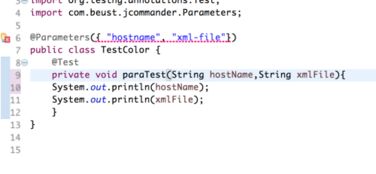很着急英文:Okay,here is an article focusing on expressing very urgent situations in English.
Article Title: Expressing Urgency in English: Phrases for Critical Situations
Article Content:
Sometimes, situations demand immediate attention. Whether you're dealing with an emergency, a critical work deadline, or a pressing personal matter, knowing how to effectively convey "very urgent" in English is crucial. Using the right words can ensure your message is taken seriously and acted upon quickly. This article explores various ways to express urgency in English, helping you communicate effectively when time is of the essence.
Why Clear Communication of Urgency Matters
In fast-paced environments or during crises, miscommunication can lead to delays or even dangerous outcomes. Clearly stating that a situation is "very urgent" helps prioritize tasks, alerts others to the severity, and prompts immediate action. Learning the appropriate vocabulary and phrases is therefore an essential skill.

Phrases and Words to Convey "Very Urgent"
Here are several ways to express urgency in English, ranging from direct to slightly more formal:
"This is very urgent." / "This is extremely urgent."
- Usage: Directly state the urgency at the beginning or clearly within the message.
- Example (Email/Message): "Hi Team, I need your input on Project Alpha by 3 PM today. This is very urgent as the client meeting is at 4 PM."
"Please prioritize this immediately." / "This requires immediate attention."

- Usage: These phrases request high priority and prompt action.
- Example (Work Context): "Could you please prioritize this task immediately? The system outage is affecting all users."
"Urgent: [Subject/Issue]"
- Usage: Often used in subject lines or headlines for emails, notices, or reports to immediately grab attention.
- Example (Email Subject): "Urgent: Action Required: Account Suspension"
"I need this urgently." / "I need this ASAP."
- Usage: Focuses on the need for something quickly.
- Example (Request): "Could you please send me the updated budget sheet? I need this urgently." or "...ASAP."
"This is a critical issue." / "This is an emergency."
- Usage: Reserved for the most severe situations where immediate action is vital and failure to act could have serious consequences.
- Example (Phone Call): "Hello, this is an emergency. The main server is down and this is a critical issue. I need you on the line now."
"Without delay." / "Act immediately."

- Usage: Emphasizes the need for speed in action.
- Example: "Please provide the necessary information without delay." or "Act immediately to resolve the billing discrepancy."
"High priority."
- Usage: A common term in project management and work contexts.
- Example: "This task has been marked as high priority. Please work on it first."
Using Urgency in Different Contexts
- Phone Calls: Be direct and state the urgency early. "Hi, this is [Your Name]. I need to speak to you about an urgent matter regarding [Issue]."
- Emails: Use "Urgent" in the subject line. Clearly state the urgency in the body. Avoid overly casual language unless the context allows.
- Text Messages/Instant Messaging: Keep it concise. "URGENT: Meeting moved to 12:30 sharp!" or "Need your help urgently with X."
- Face-to-Face: Use direct eye contact and clear, firm language. "This situation requires immediate attention."
Tips for Effective Communication of Urgency
- Be Specific: Clearly state what is urgent and why.
- Be Direct: Avoid beating around the bush when time is critical.
- Match the Tone: Use stronger language for higher levels of urgency.
- Know Your Audience: Adjust your language slightly based on who you are speaking to (e.g., a manager vs. a colleague).
- Follow Up: If your message isn't acted upon quickly enough, follow up politely but persistently.
Mastering these phrases and understanding their appropriate use can significantly improve how you handle critical situations in English, ensuring your message is received and acted upon swiftly.
文章已关闭评论!










